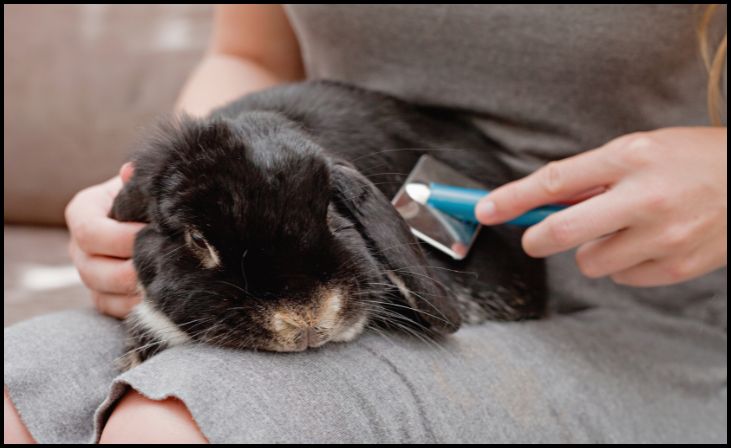Rabbits are charming and affectionate pets that can bring joy to any household. However, they require specific care to ensure they are healthy and happy. If you’re a new rabbit owner or considering adopting one, here are eight essential tips to help you provide the best care for your furry friend.
1. Provide a Spacious and Safe Living Environment

Your rabbit’s living environment is crucial to their well-being. Rabbits need plenty of space to move around, so a large cage or a designated area of your home is ideal. Ensure that their living space is safe, free from hazards, and escape-proof. Use rabbit-friendly materials and provide hiding places where they can feel secure. Regularly clean their living area to maintain hygiene and prevent health issues.
2. Offer a Balanced Diet
A rabbit’s diet should consist primarily of fresh hay, which aids in digestion and keeps their teeth healthy. Supplement their diet with a variety of fresh vegetables and a limited amount of high-quality rabbit pellets. Avoid feeding them sugary or starchy foods, as these can cause digestive problems. Fresh water should always be available. Monitor their eating habits and consult a vet if you notice any changes.
3. Ensure Regular Exercise
Rabbits are active animals that need regular exercise to stay healthy and prevent obesity. Allow your rabbit to explore and play outside of their cage for several hours each day. Supervised playtime in a rabbit-proofed area or a secure outdoor run can provide them with the physical activity they need. Interactive toys and tunnels can also help keep them entertained and mentally stimulated.
4. Maintain Proper Grooming

Rabbits are generally good at grooming themselves, but they still require some assistance. Regularly brush your rabbit to remove loose fur and prevent hairballs, especially during shedding season. Check their nails and trim them as needed to prevent overgrowth. Inspect their ears, eyes, and teeth regularly for signs of infection or abnormalities. Grooming sessions are also a good opportunity to bond with your pet.
5. Provide Mental Stimulation
Rabbits are intelligent animals that need mental stimulation to prevent boredom. Provide a variety of toys, such as chew toys, puzzle feeders, and tunnels, to keep them engaged. Rotate toys regularly to maintain their interest. Additionally, spending time interacting with your rabbit, teaching them tricks, or setting up obstacle courses can provide valuable mental enrichment.
6. Ensure Regular Vet Check-Ups
Regular veterinary check-ups are essential to maintain your rabbit’s health. Find a vet experienced with rabbits and schedule annual health exams. Vaccinations, dental check-ups, and parasite control should be part of their routine care. Early detection of health issues can prevent serious problems and ensure your rabbit lives a long and healthy life. Consult your vet immediately if you notice any signs of illness or unusual behavior.
7. Handle with Care
Rabbits are delicate creatures that can be easily injured if not handled properly. Always support their body when lifting them, and avoid picking them up by their ears or scruff. Use a calm and gentle approach to prevent stress or injury. Spend time getting your rabbit used to being handled, and never force them into situations where they feel threatened. Respect their boundaries and allow them to come to you at their own pace.
8. Understand Rabbit Behavior

Understanding your rabbit’s behavior is key to providing the best care. Rabbits communicate through body language and sounds. Learn to recognize signs of contentment, such as purring or tooth clicking, as well as signs of distress, like thumping or hiding. Socialize your rabbit to become comfortable with people and other pets. Being attuned to your rabbit’s needs and behaviors will help you create a strong bond and ensure their well-being.
Conclusion
Caring for a pet rabbit involves understanding their unique needs and providing a safe, stimulating environment. By following these eight tips, you can ensure your rabbit lives a happy, healthy life and becomes a beloved member of your family. Remember, the key to successful rabbit care is patience, attentiveness, and love.




